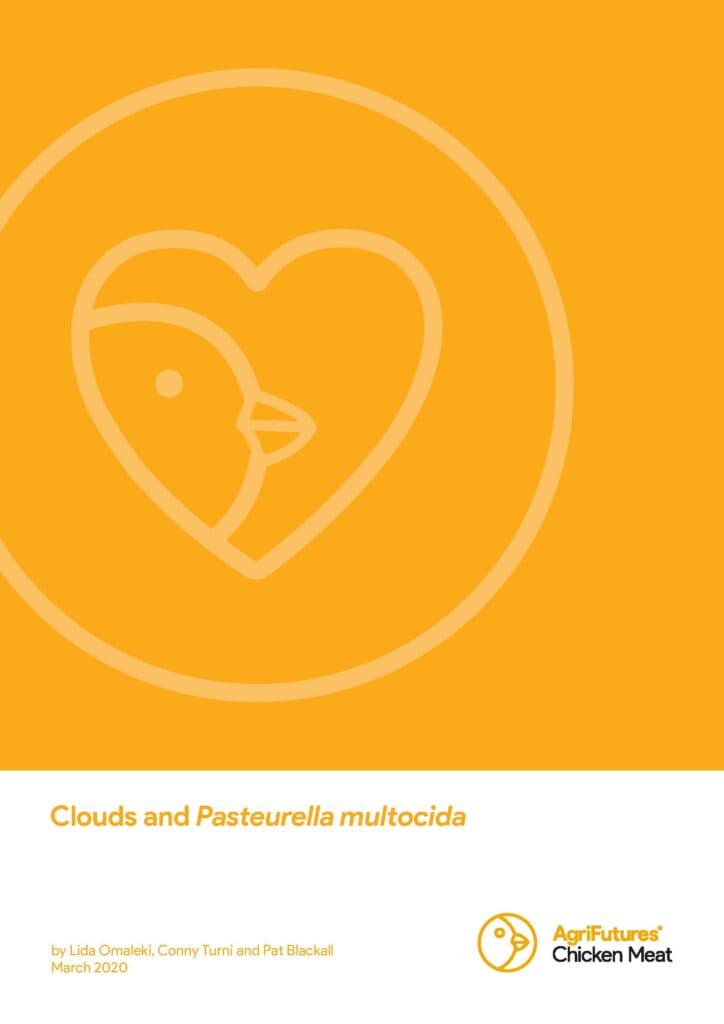The Australian chicken meat industry is a highly efficient industry that supplies more than 1,200 kilo tonnes of high-quality food and has a gross value of production of over $2.7 billion. A key component of the Australian chicken meat industry delivering quality food with efficiency and sustainability is high flock health and prevention and control programs that support that high flock health.
Fowl cholera is an important disease that can cause significant mortalities, typically in laying chickens. The disease, caused by the bacterium Pasteurella multocida, has emerged as a problem in free-range and organic chicken meat flocks in recent years.
This publication describes the development, validation and use of the latest genomic sequencing approaches and bioinformatics analysis to characterise P. multocida isolates. These tools allowed an understanding of the infection dynamics of fowl cholera on a free-range chicken meat farm. Importantly, the project generated knowledge that explains why the killed autogenous fowl cholera vaccines used on the farm could not provide protection against the disease.
With this technology now available, far more specific and relevant genomic-based guidance can be provided to vaccine companies and veterinary professionals that service the chicken meat industry. This project has produced a set of tools and techniques that provide significantly better information and guidance compared with current typing technologies. Overall, with the support of the knowledge that flows from the genomic and bioinformatics tools developed in this project, improved prevention and control programs for fowl cholera are now possible.





